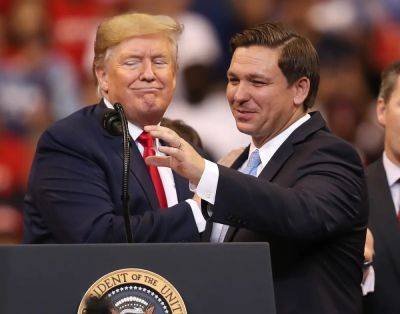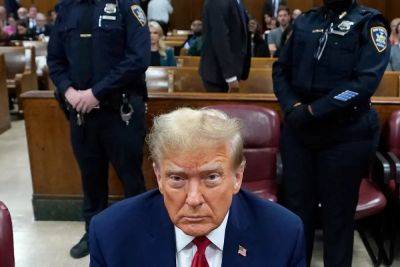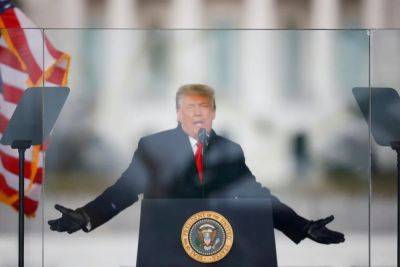What is Fisa, and what does it mean for no-warrant spying?
Congress spent the past week in a fractious debate over a major government surveillance program that gives US authorities the ability to monitor vast swaths of emails, text messages and phone calls without a warrant. In a vote on Friday, lawmakers ultimately decided to keep that warrantless surveillance intact and passed a two-year reauthorization of the law, known as section 702 of the Foreign Intelligence Surveillance Act, or Fisa.
The law has long been contentious among both progressives and libertarian-leaning conservatives who view it as a violation of privacy rights and civil liberties. Donald Trump has likewise lambasted it out of personal grievance. Its defenders, which include intelligence agencies and Joe Biden’s administration, argue that it is an important tool in stopping terrorist attacks, cybercrime and the international drug trade.
Section 702 is a measure added in 2008 to the Foreign Intelligence Surveillance Act, first passed in 1978, which allows authorities, including government agencies such as the NSA and FBI, to collect and monitor communications. More specifically, it gives them the authority to surveil the messaging of foreign citizens outside US soil and to do so without requesting a warrant.
Although section 702 was ostensibly intended to be used to monitor foreign terrorist groups and criminal organizations, law enforcement agencies have also used its authority to collect and surveil US citizens’ communications. This is because Americans messaging with people abroad are also liable to have their data accessed, which has led to improper use of the law and allegations from civil liberties groups that it gives authorities a backdoor into warrantless searches.
The law emerged from the George W Bush







